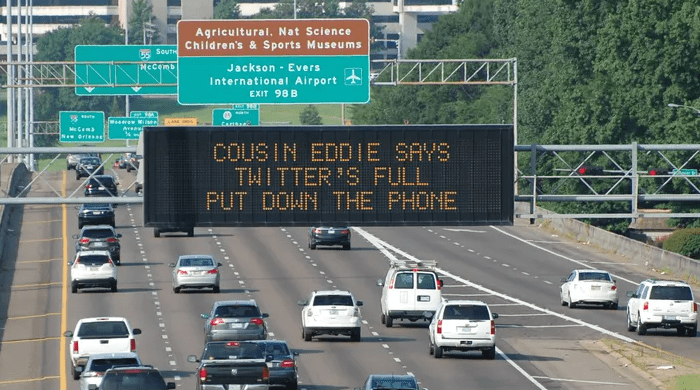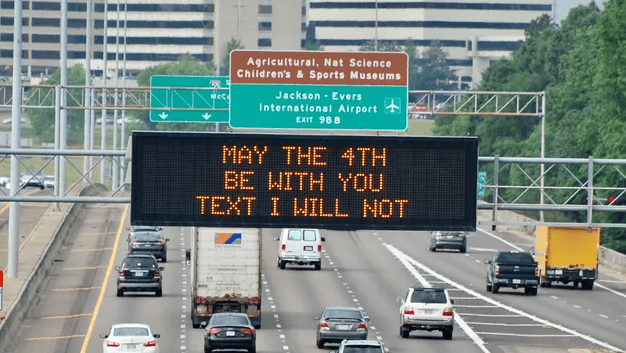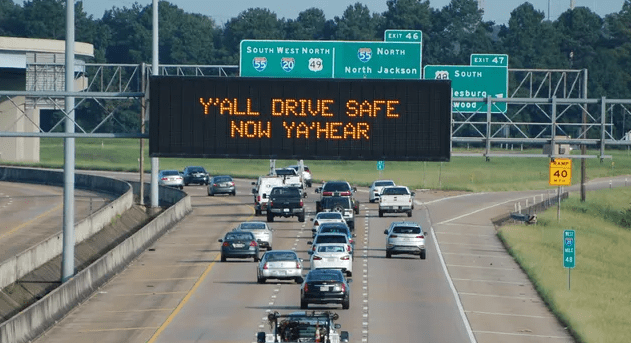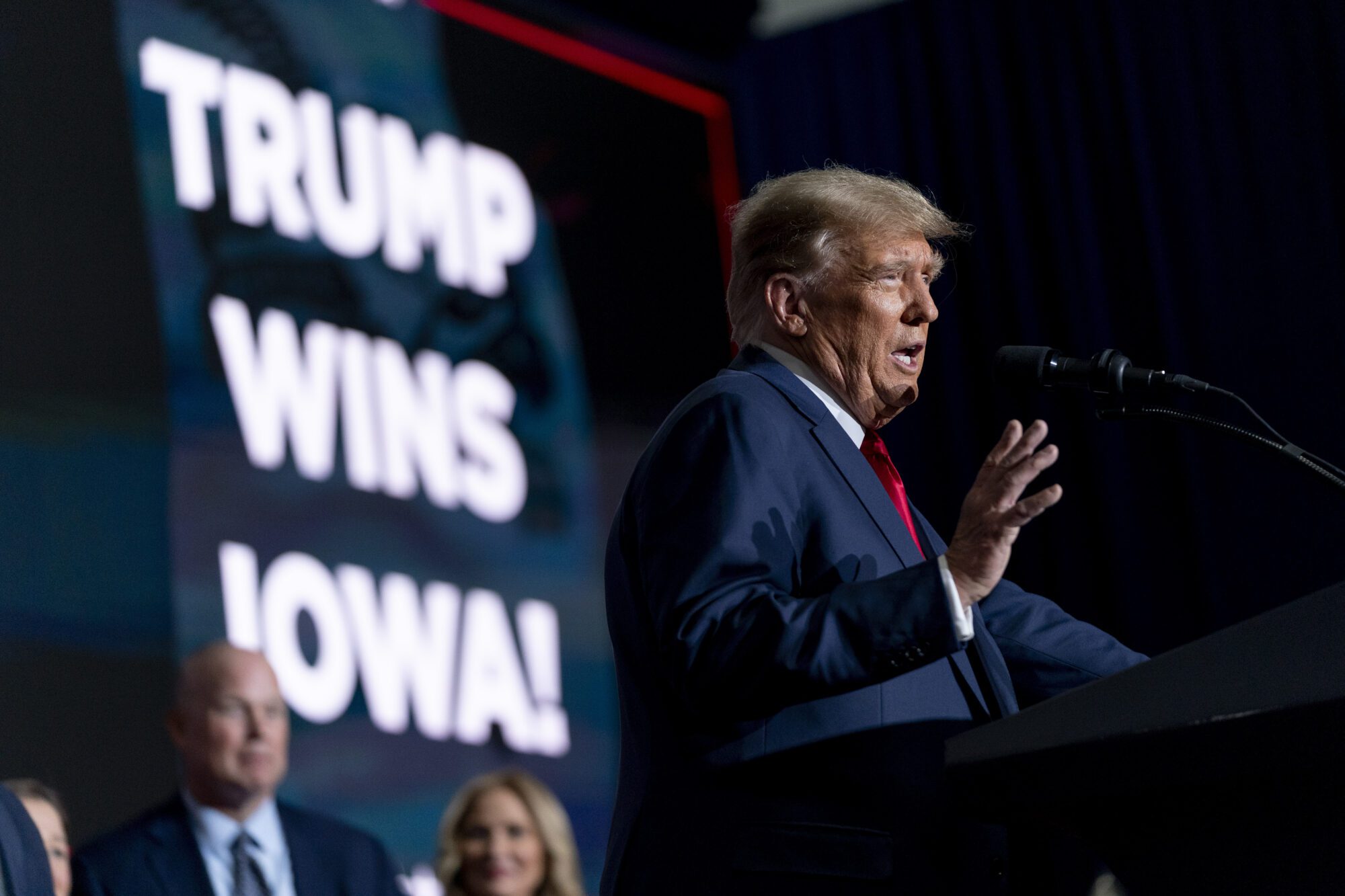
(Courtesy of MDOT)
States have two years to stop being funny on highway signs, according to the latest federal Manual on Uniform Traffic Control.
The Federal Highway Administration (FHWA) is telling state departments of transportation to pump the brakes on being funny in their latest edition of the Manual on Uniform Traffic Control Devices.
According to the Federal Register, the FHWA proposed new language in December 2023 to clarify that safety and transportation-related messages – which had been and would continue to be allowed – should be clear and direct, and meaningful to the road user on the roadway that the message is displayed.
“The FHWA recommended that messages with obscure meaning, references to popular culture, that are intended to be humorous, or otherwise use nonstandard syntax for a traffic control device, not be displayed because they can be misunderstood or understood only by a limited segment of road users and, therefore, degrade the overall effectiveness of the sign as an official traffic control device,” per the federal guidance.
Mississippi, among many other states, have used humor and cultural references to convey safety messages on digital signage across the state for a number of years, even going so far as holding public campaigns and contests to have citizens submit phrases to be displayed on signs across the state’s highways.

MDOT Executive Director Brad White told Magnolia Tribune they have always known this was highly regulated, in the sense that all messages needed to be tied in to safety or something pertinent to our mission.
“I feel like we have done a good job of incorporating humor and cleverness into these types of messages without going overboard,” White said. “Hopefully there will be a way to continue using these boards in an effective but acceptable manner.”
The Wall Street Journal recently reported on two studies on the effectiveness of humorous signs or those containing cultural references.
A 2020 study conducted for Virginia’s Department of Transportation by Tripp Shealy, a professor of civil and environmental engineering at Virginia Tech, studied the messages. As the WSJ reported, Shealy “used proxies for behavior change, including measuring blood flow to the prefrontal cortex, to determine how people responded to the messages. Those using humor, wordplay or rhyme… commanded the most cognitive attention compared with other types, his research found.”
“My recommendation would be that they’re useful, and humor should be allowed, from what we studied,” Shealy was quoted as saying.
However, another study noted by the WSJ from the Transportation Research Board in 2022 said a “significant proportion” of drivers didn’t understand messages with humor, wit or pop-culture references.
“That panel recommended against using any of those tactics in messages,” the WSJ reported. “Other studies warn of distracting traffic signs in general.”

The new FHWA rule gives states two years to implement the changes in the new 1,100-page manual, including the rules on the regulations related to signs and other traffic control devices.











